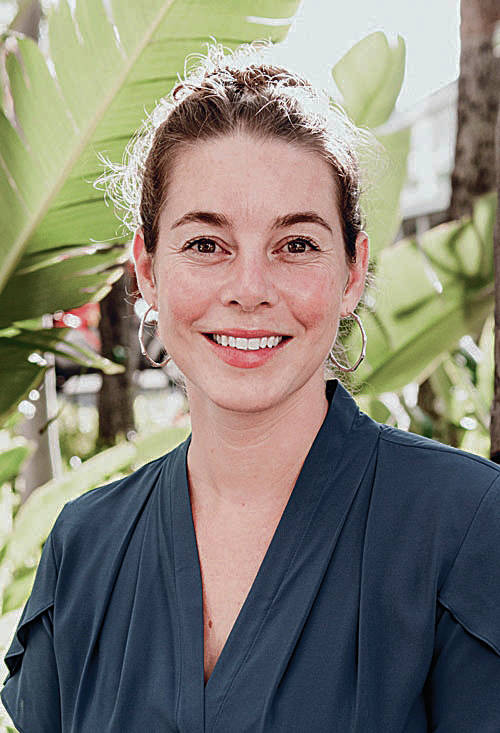Column: We have a chance to build a more equitable, resilient Hawaii

Billy Pieper of Barclays Bank

Claire Sullivan of MA‘O Organic Farms

Gavin Thornton of Hawai‘i Appleseed



When we think about the future of Hawaii — the near-term, post-pandemic recovery, as well as the long-term future our children and grandchildren will inherit — what does it look like?
Will we enjoy an innovation- driven economy where everyone can find well-paying jobs that sustain a healthy life with good, locally produced food, and homes that are safe and affordable?
Will we have the social infrastructure necessary to build strong communities where we support one another, shop at small businesses built by homegrown entrepreneurs, and solve problems with the collective wisdom and rich, diverse perspectives Hawaii’s people have to offer?
Will we return to the foundations laid by kanaka maoli, using our natural resources sustainably, allowing Hawaii’s people and future generations to thrive?
If this is indeed the future we seek, we must align our personal, professional and political decisions with the principles and values to which we aspire. To build a vibrant community, we must commit to a serious shift in the way we do business and run our government.
Fortunately, our community has the knowledge and skills to address Hawaii’s current and systemic economic challenges. In June, we invited nonprofits, businesses and individuals who have signed on to the Uplift Hawai‘i principles to nominate projects and programs that are already doing uplifting work. These are initiatives that we can invest in right now to build a better future — using CARES Act funding, along with our local private and philanthropic resources.
Don't miss out on what's happening!
Stay in touch with breaking news, as it happens, conveniently in your email inbox. It's FREE!
Nominated projects include the creation of a Hawaii civilian conservation corps to help unemployed residents work with organizations engaged in restoring native forests and trails, maintaining parks and campgrounds, and building community-serving infrastructure. This program would develop and train a new workforce while addressing long-standing community needs and aspirations.
Another nominee is WAI: Wastewater Alternatives & Innovations, which helps homeowners and communities reduce wastewater discharge by upgrading antiquated cesspools with affordable, eco-friendly solutions to wastewater management. This is an example of addressing a pressing need in our community while diversifying our economy and improving the well-being of our residents and islands.
Other suggestions include investing in a new paradigm of community centers that serve as a place of gathering, education and services that uplift the people and communities they are a part of, following the lead of organizations like Key Project, Kokua Kalihi Valley and Kula No Na Po‘e Hawai‘i. The resiliency they’ve created in their communities, demonstrated through their quick, effective responses to the pandemic by connecting people with the resources they need, is a model for building social infrastructure in Hawaii.
These are just a few examples of the many organizations that give us hope. We know that our lawmakers will have to make some tough decisions during this short legislative session about how to best deploy our economic recovery funding, and that our business and philanthropic community is navigating a challenging environment and facing many calls for help. Through it all, we hope our civic leaders will respect the community-sourced guiding principles articulated by Uplift Hawai‘i, ‘Aina Aloha Economic Futures Declaration and other related efforts, and align their policies and actions with the needs and aspirations of the community.
Rebuilding Hawaii’s economy will take an effort unlike any we have yet undertaken. Although the pandemic has brought tremendous hardship, it has also given us a once-in-a-generation opportunity to usher in the kind of change that normally takes decades to enact. Together, we can bring about a more equitable and resilient future that honors the people, land, culture, and values of Hawaii.
Billy Pieper of Barclays Bank, Claire Sullivan of MA‘O Organic Farms and Gavin Thornton of Hawai‘i Appleseed are members of Uplift Hawai‘i’s informal advisory committee.



